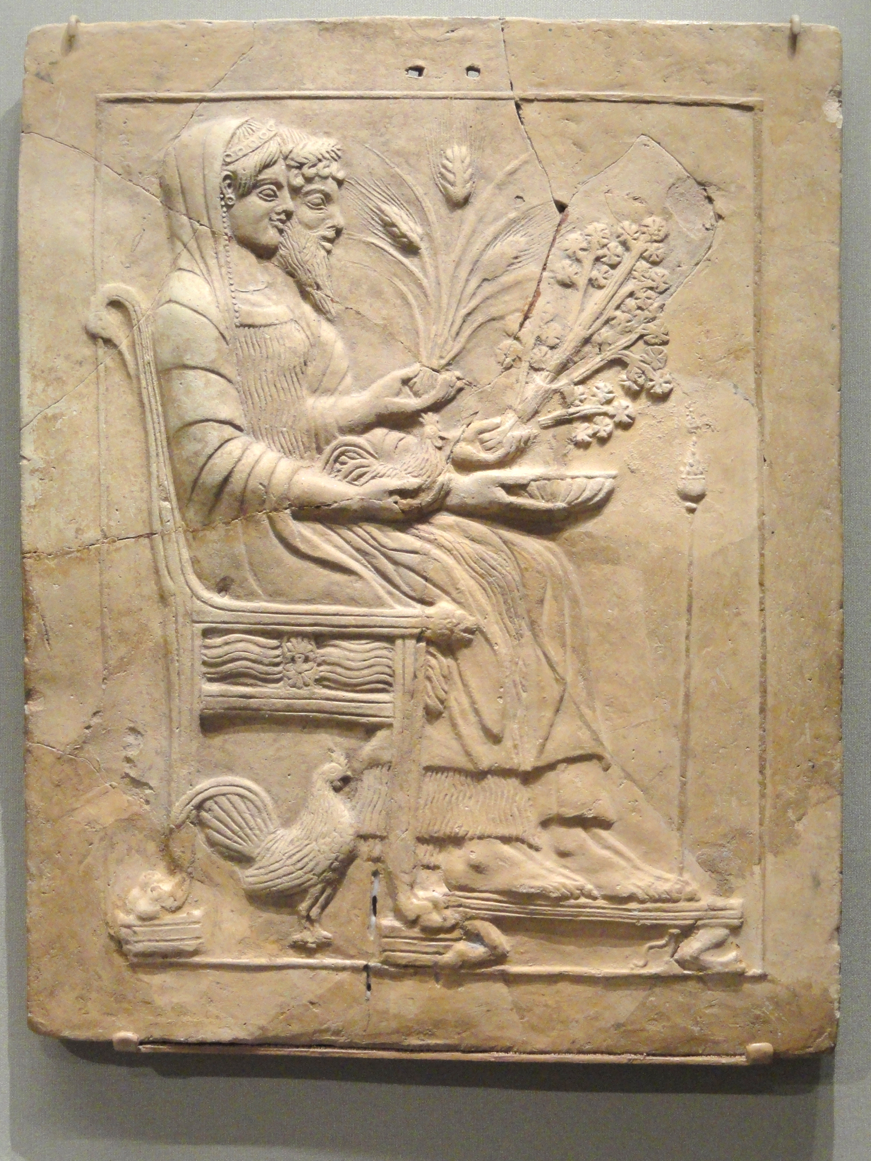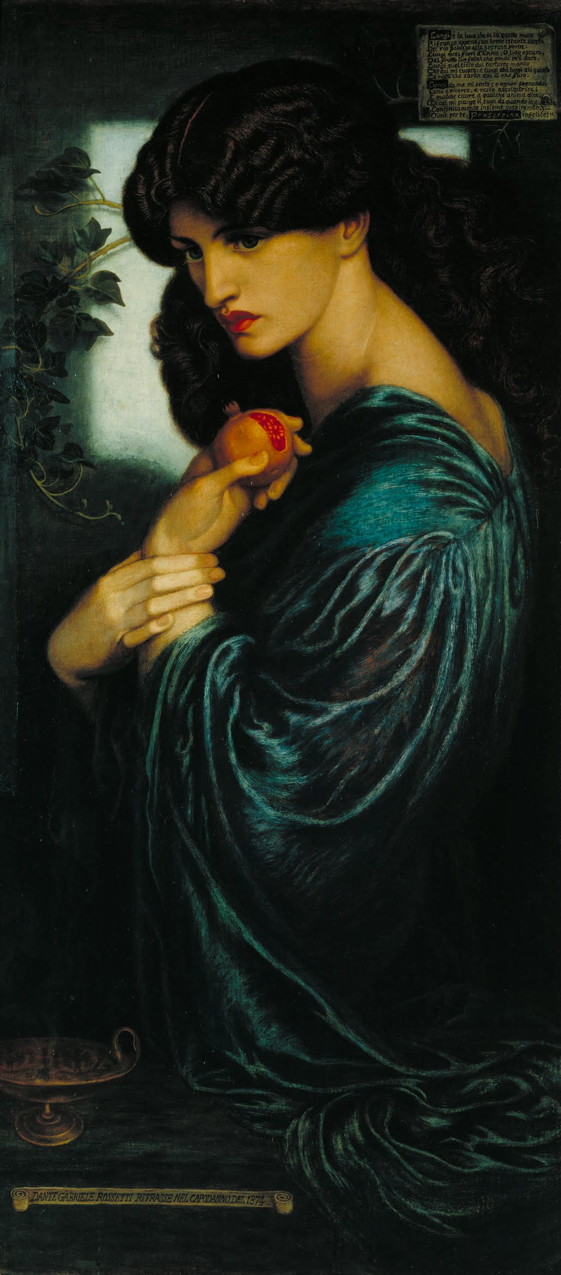Persephone
Roman name: Proserpina
Epithets: Chthonian (with mother Demeter), Kore (maiden)
Symbols: pomegranate (fertility symbol), torch, crown
Functions: goddess of the dead and fertility

Persephone was the daughter of Zeus and Demeter. She was married to Hades, ruler of the Underworld, who abducted her and took her as his bride. After Demeter discovered what had happened, Demeter and Hades struck a deal. Persephone would spend two thirds of the year with her mother, during which crops would grow, and the rest of the year she would live with her husband, during which the earth would die [See Demeter]. This is a natural aetiological myth that explains the origin of the seasons: Persephone is with Demeter during the spring, summer, and fall, but during the winter, when Persephone is in Hades with her husband, it is winter on the earth and the crops do not grow.
Persephone is always depicted as happy in her role as Queen of the Dead despite the violent nature of her capture, which raises some interesting questions about how marriage was perceived in ancient Greece.
Persephone does not have a large role in myth. One notable exception is one of the versions of the myth of Aphrodite and Adonis. Aphrodite was smitten by the beauty of the young and handsome Adonis and gave him to Persephone for safe keeping, but Persephone was also smitten. The Queen of the Dead refused to give Adonis back, and Aphrodite went to Zeus to help settle the quarrel. Zeus declared that the boy should spend a third of the year with Persephone, a third with Aphrodite, and a third as he pleased, which he chose to spend with Aphrodite. This mirrors the deal brokered for Persephone’s time, and similarly, Adonis became associated with death and rebirth in the Adonia festival [see Aphrodite].


